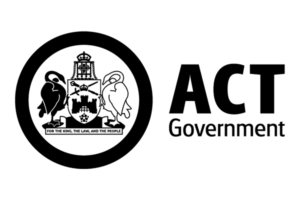
Pre-Conference Events
Early Career Network
Monday 30 September 2024
12:00 – 14:30
Hotel Grand Chancellor Hobart
This year’s Early Career Event will involve a short road safety activity leading into a ‘speed mentoring’ session with road safety mentors from across industry, government and academia. The event will finish with a networking session. This event is a great opportunity to network and learn from more experienced professionals and practitioners about what it’s like to build a career in road safety. Anyone who considers themselves an early career professional in road safety is welcome to attend. This can range from students through to those who already have career experience and would like to learn more.
Session made possible by

Matching solutions to problems (LGN pre conference workshop)
Monday 30 September 2024
12:30 – 14:30
Hotel Grand Chancellor Hobart
This interactive workshop will highlight common issues faced by local governments and invite consultants, researchers, government agencies and other interested parties to work together towards solutions.
Low and Middle Income (LMIC) Vision Zero Workshop
Monday 30 September 2024
13:00 – 17:00
Hotel Grand Chancellor Hobart
This workshop will discuss vision zero and safe system principles (drawing on the Swedish Vision Zero Academy course content) and their application in Low- and Middle-Income Countries (LMIC). In addition to the Vision Zero Academy content there will be presentations by local speakers, such as Blair Turner, who are experienced in applying safe system best practice in the Asia-Pacific Region. During the workshop there will be the opportunity to discuss the application of visions zero and safe system principles to transport corridors in LMICs. This session is suitable for all road safety professionals working on road safety projects in LMIC countries, both within the country and as external advisors.
Women in Road Safety
Monday 30 September 2024
14:45 – 17:30
Hotel Grand Chancellor Hobart
This is an opportunity to meet with other women to network and be inspired to grow and continue your career in road safety. The event will include an interactive workshop and discussion around opportunities and challenges for women in road safety. The Women in Road Safety Network, one of the ACRS Networks, is dedicated to empowering and supporting women in road safety. Our aim is to offer members the opportunity to connect and network with professionals from government, industry, and academia across Australia and New Zealand.
Emergency vehicle safety: Side of road safety for first responders
Monday 30 September 2024
12:00 – 14:30
Hotel Grand Chancellor Hobart
In recent years, there has been increasing demand for emergency services due to a range of climate, health, and social factors. This results in greater exposure to emergency vehicle driving, and under conditions that may not have been seen previously. Operating on the side of roads introduces a considerable level of complexity and risk for these workers, and other road users. The purpose of this workshop is to share experiences and innovations for improving side of road safety for emergency and incident response workers. At the workshop, we will hear some examples of current research, and some recent practice ‘wins’. We will also discuss where the evidence gaps are, and explore new ways of working together. This workshop will provide a unique opportunity to identify opportunities for collaboration – both interagency and building research-practice networks. Carlyn Muir (MUARC), Rob Jaske (Ambulance Victoria), Rachael Mason (NZ Police), Chris Hayes (Victoria Police)
Road Policing Network meeting
Monday 30 September 2024
15:00 – 17:30
Hotel Grand Chancellor Hobart
This session is the initial event for the Road Policing Network (RPN). A key purpose of the RPN is to facilitate connections between practitioners and academics working in the road policing field and to provide opportunities for these people to network with others people who work in this area. Thus, this event will launch the RPN, provide an overview of its aims and purpose, introduce the RPN committee and allow time for discussion and networking. This session is suitable for road safety professionals and researchers who work within the road policing context.
People, Place and Road Safety Walking Tour
Monday 30 September 2024
15:00 – 17:30
Off-site
Join a guided tour of Hobart’s Waterfront. The tour will provide an opportunity to see a bit of Hobart while you discuss road safety aspects of the Hobart Waterfront revitalisation where a wide range of road users and event uses creates a range of interesting design challenges. The tour will start at the Hobart Grand Chancellor. Please wear comfortable clothing and bring a jacket.
